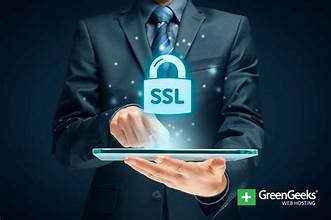BUSINESS
Tools for a Safer Online Experience in your Ecommerce

In the fast-evolving world of ecommerce, ensuring a secure environment for both businesses and customers is more crucial than ever. The rise of digital transactions, especially post-pandemic, has seen unprecedented growth in online shopping platforms. With this expansion, the risk of cyber threats has also multiplied, making safety a top priority. The digital landscape can be treacherous, and it is vital to implement tools that safeguard transactions, customer data, and overall operations. These tools, when correctly deployed, enhance the overall trustworthiness of an ecommerce platform, fostering consumer confidence and ensuring seamless, secure transactions.
The Importance of Data Encryption
At the core of ecommerce security is the protection of sensitive information. This is where data encryption comes into play. Encryption tools help to convert readable data into encoded information that can only be deciphered by authorized users with a decryption key. For an ecommerce business, encryption is essential not only for financial transactions but also for protecting customer personal data like names, addresses, and payment details.
Modern encryption methods, such as SSL (Secure Socket Layer) and TLS (Transport Layer Security), ensure that sensitive information transmitted between a user and an ecommerce site is secure. SSL certificates also contribute to establishing trust between customers and the business, as the presence of this certificate is often visually represented by a padlock symbol in the browser’s address bar. For ecommerce platforms, adopting SSL or TLS encryption is fundamental to gaining customer confidence and avoiding vulnerabilities that could lead to data breaches.
The Role of Multi-Factor Authentication (MFA)
Multi-Factor Authentication (MFA) adds an additional layer of protection by requiring users to provide multiple credentials to gain access to an account or service. This usually includes a combination of something the user knows (like a password), something they have (like a mobile device), and something they are (biometric verification such as a fingerprint or face scan).
In ecommerce, MFA can dramatically reduce the chances of unauthorized access to customer accounts, helping to protect against identity theft and fraud. For business owners, implementing MFA can secure administrative accounts and prevent hackers from gaining access to sensitive business operations. While passwords can be compromised, MFA ensures that even if one factor is breached, a second or third layer of verification protects the account.
Fraud Detection Tools
Fraud in ecommerce comes in various forms, from payment fraud to account takeover fraud. To mitigate these risks, fraud detection tools are designed to monitor and flag suspicious behavior in real-time. Many fraud detection solutions use machine learning algorithms to analyze transaction patterns, identifying irregular activities such as multiple failed payment attempts, unusually high-value purchases, or logins from unfamiliar locations.
For example, if a customer account is accessed from a location vastly different from the user’s regular patterns, fraud detection tools can flag the activity and trigger additional verification steps before allowing the transaction to proceed. By identifying potentially fraudulent transactions early, these tools help businesses minimize chargebacks, protect customer data, and reduce revenue loss due to fraud.
Trust and Safety Tools in Ecommerce
Trust and safety tools are essential components of ecommerce platforms, especially as customers place significant value on a website’s reputation. Trust tools include features such as verified customer reviews, secure payment gateways, and badges of trust (such as the presence of SSL certificates). These elements help reassure customers that they are dealing with a legitimate and secure business.
Beyond customer-facing tools, backend trust and safety solutions play a critical role in maintaining platform integrity. These tools monitor user activity to detect any malicious behavior, such as spamming or phishing attacks. Automated systems that enforce account verifications, block suspicious users, and monitor site activity for any abnormal behavior help keep ecommerce platforms secure.
Another key tool in building trust is clear communication regarding privacy policies and data protection measures. Ecommerce businesses must ensure that customers are fully aware of how their data is collected, stored, and used. Transparent privacy policies increase consumer trust and help businesses comply with data protection regulations.
Role of the Online Safety Act
As the world of ecommerce continues to evolve, legislative frameworks such as the Online Safety Act play an increasingly important role in safeguarding digital spaces. This legislation, adopted in various regions worldwide, aims to enforce standards that ensure online platforms implement adequate measures to protect users from harm. In ecommerce, the Online Safety Act mandates businesses to adopt stronger security measures and report breaches within specific time frames.
In the context of ecommerce, the Online Safety Act underscores the need for businesses to actively protect users from online fraud, cyber threats, and privacy breaches. One of its core mandates is to ensure that platforms take responsibility for the safety of their users. This includes not only protecting personal data but also curbing harmful content or practices that may emerge on the platform.
Ecommerce platforms must be compliant with such regulations to avoid penalties, but more importantly, they must align with these frameworks to ensure their platforms are safe for both buyers and sellers. By adhering to the standards outlined in the Online Safety Act, ecommerce platforms enhance their credibility and provide a safer environment for transactions.
Secure Payment Gateways
One of the cornerstones of ecommerce safety is secure payment processing. Payment gateways act as the middleman between the ecommerce platform and the financial institution, facilitating the secure transfer of funds. These gateways encrypt sensitive payment data and ensure that it is securely transmitted, reducing the likelihood of data interception or fraud.
However, not all payment gateways offer the same level of security. The most robust options integrate fraud prevention tools, including address verification services (AVS) and card verification value (CVV) checks, to confirm the legitimacy of the transaction. In addition, tokenization technology used by payment gateways replaces sensitive card details with unique identifiers, ensuring that even if data is intercepted, it cannot be used by attackers.
Businesses that implement secure payment gateways not only protect themselves from financial losses but also instill greater confidence in customers, who can shop without worrying about the safety of their personal and financial information.
The Future of AI-Powered Security in Ecommerce
Artificial Intelligence (AI) is revolutionizing the way ecommerce platforms manage security. AI-powered security tools are increasingly being used to identify threats, detect fraudulent activities, and enhance overall platform security. These systems are capable of learning from past incidents to predict and prevent future security breaches.
For instance, AI tools can scan vast amounts of data in real-time, identifying potential threats based on patterns that would be impossible for human security teams to detect. AI-driven chatbots can also provide an extra layer of protection by managing customer interactions and flagging potentially suspicious behavior before a transaction is completed.
In addition, AI can be used to personalize security measures for individual users. By analyzing behavior and transaction patterns, AI tools can assess risk on a user-by-user basis, allowing ecommerce platforms to implement custom security measures for high-risk users without affecting the experience of low-risk users.
Educating Consumers on Online Safety
Finally, while it is essential for ecommerce platforms to have robust security tools in place, educating consumers about online safety is equally important. Many cyber threats are successful because consumers fall victim to phishing scams, use weak passwords, or fail to recognize suspicious activity. By providing customers with resources on how to protect themselves, such as the importance of using strong, unique passwords and recognizing common scam tactics, businesses can further safeguard their platforms.
In addition, businesses can promote the use of tools like password managers to help customers securely store their login credentials. Password managers not only help users generate strong passwords but also ensure that they do not reuse passwords across multiple platforms, reducing the risk of account takeover.
Conclusion
A safer online experience in ecommerce requires the integration of multiple security tools working in harmony. From data encryption and MFA to trust and safety tools and compliance with regulations such as the Online Safety Act, ecommerce businesses have a wide array of tools at their disposal to protect both their operations and their customers. As threats continue to evolve, staying ahead of the curve with advanced technologies like AI-powered security and educating consumers will be essential for maintaining a secure, trusted online environment. Through the adoption of these tools, ecommerce platforms can not only ensure the safety of their transactions but also build lasting trust with their users.
BUSINESS
Tips for Choosing the Right Yard Waste Dumpster Rental

When it comes to managing yard waste, having the right dumpster rental can make a world of difference. Whether you’re tackling a landscaping project or simply cleaning up your outdoor space, having a convenient and efficient way to dispose of yard waste is essential.
With numerous options available, it’s important to know what to look for when choosing a yard waste dumpster rental.
Here are some valuable tips to help you make the right decision.
Assess Your Needs
Before you dive into searching for a yard waste dumpster rental, pause for a second to think about what you need. Think about how much yard waste you think you’ll end up with and the size of the stuff you’re tossing out. This will give you a good idea of what size dumpster you should go for. Rental services usually have different sizes to choose from, so knowing your needs will make picking one a breeze.
Research Local Providers
Before selecting a yard waste dumpster rental, it’s crucial to research local providers thoroughly. Explore this dumpster rental service in Delaware for insights on what to consider when choosing a rental company near you. Delve into reviews, compare pricing, and evaluate services provided. Ensuring you secure the most advantageous deal available while upholding quality is paramount.
Consider Sustainability
Going green is not only good for the environment, but it can also save you money on your rental. When searching for a yard waste dumpster rental, consider asking if they have environmental considerations in their waste management process or if they recycle the waste they collect. This will not only reduce your carbon footprint but may also result in lower fees.
Consider Pricing and Terms
When you’re checking out various yard waste dumpster rental choices, make sure to think about the pricing and terms. Look for clear pricing options with no sneaky fees, and ask about any extra charges for delivery, pickup, or going over weight limits.
Also, keep an eye on how long you can rent it and any rules about what kind of yard waste you can toss in. Knowing the ins and outs of the rental deal will help you dodge surprises and make sure your rental goes without a hitch.
Choose the Right Size
Choosing the perfect dumpster size is key for handling yard waste like a pro. If it’s too small, you’ll end up with overflow and extra charges; too big, you’re overspending. Think about how much waste you’ll have and pick a dumpster size that’s just right. Rental services usually have various options, so you can find the one that suits your needs best.
Prioritize Sustainability
When you’re renting a yard waste dumpster, think about going green. Check out dumpster rental services that give eco-friendly disposal choices like composting or recycling yard waste whenever they can. By picking a provider that cares about sustainability, you’re not just getting rid of waste, you’re helping out the planet too.
Making the Right Yard Waste Dumpster Rental Choice
Picking the perfect yard waste dumpster rental is a must for handling outdoor projects and keeping your outdoor area neat. By figuring out what you need, checking out local options, thinking about costs and terms, finding the right size, and focusing on sustainability, you can make sure renting goes smoothly.
Whether you’re sprucing up your yard or doing some landscaping, choosing the best dumpster rental service in your area will help you manage your yard waste well and in an eco-friendly way.
Share this article and other related content with your fellow readers as you continue exploring the articles on this site.
FINANCE
The Benefits of Utilizing Expert Tax Services for Managing Your 529 Plan

Navigating the complexities of a 529 Plan can feel overwhelming. Especially when considering tax implications. That’s where expert tax services come into play.
But what makes a tax accountant invaluable in this scenario? They bring clarity to intricate tax laws and regulations. By doing so, they ensure you’re compliant and maximizing your savings.
Their guidance becomes a beacon, illuminating the path to financial efficiency. In managing your 529 Plan, the expertise of a tax accountant is indispensable. They turn a daunting task into a manageable and strategic financial decision.
Understanding the Tax Benefits of a 529 Plan
529 plan is a type of savings plan that allows you to invest funds for future education expenses without incurring federal taxes on earnings or withdrawals. Many states offer additional tax incentives for contributing to a 529 Plan.
These can include deductions or credits on state income taxes. It makes it an even more attractive option for families saving for education expenses. Yet, it’s crucial to understand the specific tax benefits of your state’s plan.
It is where expert tax services come in. They have an in-depth understanding of state-specific tax laws and regulations. They take advantage of all available tax benefits.
The Expertise of Tax Accountants in Maximizing Savings
One of the benefits of utilizing expert tax services for your 529 education savings plans is their ability to maximize your savings. Tax accountants have a deep understanding of tax laws and regulations, including those specific to 529 Plans. They can help you navigate the complex tax implications of your contributions, earnings, and withdrawals from the plan.
This knowledge allows them to identify opportunities for tax savings. It ensures that you are compliant with all tax laws related to 529 education savings plans.
By leveraging their expertise, you can make informed decisions. It optimizes your financial benefits and secures your future educational savings.
Strategic Planning for Your 529 Plan
An expert tax service can help you develop a strategic plan for your 529 Plan. They can analyze your financial situation and determine the most helpful ways to contribute, invest, and withdraw funds from the plan.
Tax accountants can also guide how to coordinate 529 Plan contributions with other education-related tax benefits. These includes the following:
- American Opportunity Tax Credit
- Lifetime Learning Credit
Peace of Mind and Ongoing Support
Managing a 529 Plan can be a time-consuming and complex task. By utilizing expert tax services, you can have peace of mind knowing that your plan is being managed efficiently and effectively.
Tax accountants can also provide ongoing support and guidance as your financial situation changes or as new tax laws are implemented. It allows you to focus on other important aspects of your life while still ensuring that your 529 Plan is being managed in the most beneficial way possible.
Discovering the Benefits of Expert Tax Services
Expert tax services make 529 Plans manageable. They decode complex tax issues, revealing paths to savings. Their insight ensures compliance and optimizes your investment.
Affordable tax service transforms daunting tasks into strategic success. It’s about maximizing benefits while minimizing stress. Choose expert tax services for peace of mind.
They safeguard your educational savings, ensuring future success. Remember, investing in expert advice pays dividends in financial health.
Did you find this article helpful? If so, check out the rest of our site for more informative content.
REAL ESTATE
The Cost of Inflation in Construction

Since 2022 inflation has been driving up costs for just about everything, from bread to gasoline to construction costs and manufacturing. At just about every level, cost increases from 10 to 200 percent have been realized, sometimes adding three to four layers onto the original cost from the producer before reaching the final end user or customer. Construction in particular has been significantly hammered by inflation in multiple areas, depending on so many different supplies, skills, trades and products to complete a project. That cost increase ultimately has to get passed on to the commercial or industrial customer who may not be so willing to take on such increases if they can be delayed until the market is more reasonable.
How Can it Be Fixed?
The primary tool used by the government involves reducing the amount of currency in the market, thereby driving up the value of the dollar and reducing inflation’s effect. While easy to say, the implementation aspect is hard. It means increasing the cost of borrowing, making new money more expensive to obtain. Other methods involve reducing the number of income earners generating new value as well. That in turn results in job loss. The list goes on with a singular, common feature – pain. Most solutions for inflation tend to cause more loss, which is why inflation is often feared as a double-damage effect on an economy.
What Can Construction Do as a Solution?
One method of fighting inflation in the construction industry involves finding lower-cost substitutes for supplies and services used. However, this is a bit of a limited option; going too low ends up lowering the quality of the goods or services provided. Since the construction company is ultimately liable for the quality of the entire project delivery, there is a practical floor to how low quality can go before a discounted price isn’t worth taking. After all, the old saying of, “You get what you pay for,” really does apply in construction.
A second method involves financing the inflation as a delay tactic. The thinking here is to let someone else’s money take the hit of inflation through borrowing and, when times are better and currency valuation rises, the financing can be paid off with a lower cost. It is, in essence, gambling that the future will provide a better exchange for the borrower than the cost of the borrowing today. In many cases, this kind of financing out of inflation doesn’t work, and the cost of the construction ends up being far more.
A third method involves maximizing local resources, labor and equipment. While some construction companies insist on bringing all of their resources, cost-sensitive operations focus on finding the resources locally wherever the project happens to be. Again, there is a bit of gambling here; if the resources are not available locally, the company will still have to bring them in to complete the job. At short notice, that could drive the cost higher than if the elements were retained to begin with well in advance.
The Most Sensitive Construction Areas Hit
Among the areas hardest hit, raw material suppliers and equipment fleet managers have been seeing the most noticeable ongoing expense impacts. Fuel for vehicles erodes operating budgets mercilessly. Where construction involves a lot of transport, fuel costs are going to remain a challenge.
Most construction requires raw materials for assembly and end product development. As raw materials go up, the cost of the project increases notably. Materials can reach as much as 60 percent of a construction project’s overall expense, so controlling procurement is essential to protect profit margins. Yet again, the quality issue ties the project’s hands from going too cheap on supplies.
Finally, labor will continue to be a pressure during periods where hiring is difficult. Combined with inflation, deficits in skilled labor and trades can easily drive up salary and wage costs on a project, even with outsourcing and contracting versus direct hires.
Inflation Doesn’t Last Forever, Right?
Much of the expectation in the U.S. is that the current inflation levels will be temporary. However, Japan was a good example where long-lasting economic problems hampered multiple industries for a decade or longer. There’s no rule that says inflation can only last one or two years. Instead, monetary policy tends to be the primary response that makes a difference, reducing supply of currency and increasing economic buying power.

 ENTERTAINMENT4 days ago
ENTERTAINMENT4 days agoExploring the Kristen Archives: A Treasure Trove of Erotica and More

 ENTERTAINMENT1 day ago
ENTERTAINMENT1 day agoKiss KH: The Streaming Platform Redefining Digital Engagement and Cultural Currents

 EDUCATION1 day ago
EDUCATION1 day agoLingrohub Platform: A Complete Student Access Guide

 LIFESTYLE4 months ago
LIFESTYLE4 months agoThe Disciplinary Wives Club: Spanking for Love, Not Punishment

 TECHNOLOGY1 day ago
TECHNOLOGY1 day agoCasibom: The Digital Alchemy Reshaping Systems, Society, and Self

 TECHNOLOGY23 hours ago
TECHNOLOGY23 hours agoSecuring Your Online Presence: The Ultimate Guide to Buying an SSL Certificate

 BUSINESS23 hours ago
BUSINESS23 hours agoDiversifying Your Portfolio: The Key to Successful Investing in Portland, Oregon

 LIFESTYLE23 hours ago
LIFESTYLE23 hours agoTips for Prolonging the Lifespan of Truck Roll-Up Door Rollers











